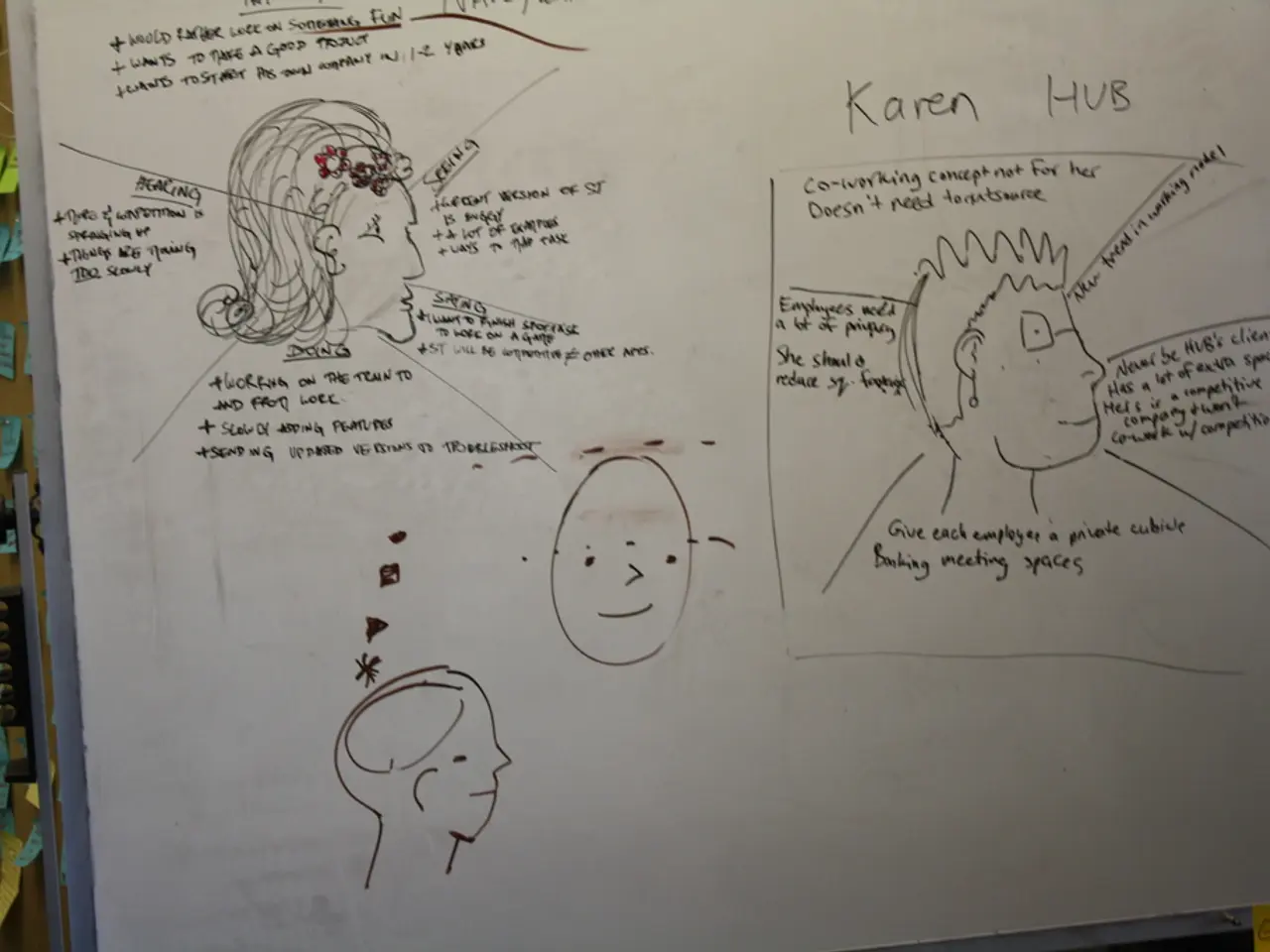AI-Designed Posters Sparking Controversy at Film Festival Among Designers
The Biarritz Film Festival made headlines recently for using AI artwork for its promotional poster, but the reception was far from positive. The poster, featuring a model submerged underwater surrounded by plump goldfish, was designed using AI instead of human creativity, leading to a heated backlash from creatives.
One Redditor criticized the use of AI, stating that the poster could have been created using Photoshop in a short amount of time. Another Redditor expressed frustration, claiming that the poster demonstrates poor creativity and is an example of what to avoid when it comes to AI art. The promotional poster's design, with its uncannily perfect Gaussian-blurred visuals and saturated color palette, had a distinct AI feel, further fueling the criticism.
Despite the negative reception of the Biarritz Film Festival poster, AI-generated artworks in the film industry are not all met with such criticism. AI-assisted film-making has been praised for its ability to streamline production processes while enhancing creativity. For example, a recent Jamaican film project used AI tools to create a movie in just seven weeks, demonstrating the potential for rapid and innovative storytelling.
Tools like Adobe's Firefly have been adopted in Hollywood for tasks such as generating footage from text and pre-visualization, offering studios a safe and efficient way to explore new ideas. This integration has led to increased productivity and expanded creative possibilities. AI-driven visual effects (VFX) and sound design tools are transforming the post-production phase by automating tasks like rough cut assembly and generating photorealistic CGI. This not only saves time and costs but also allows for more nuanced storytelling.
However, the use of AI in the film industry is not without its controversies. Many in the industry question the role of AI in creative processes, raising concerns about authorship and artistic control. OpenAI's use for scriptwriting and other literary tasks is controversial due to copyright and regulatory issues. Filmmakers like Guillermo del Toro have expressed skepticism about AI-generated art, viewing it as an insult to human creativity. However, others argue that del Toro's reliance on existing IPs counters his stance against AI's potential for innovation.
A significant portion of artists are concerned that unregulated AI could negatively impact their careers and intellectual property rights. There is a strong call for a licensing-based solution to address these challenges. The use of AI in the Biarritz Film Festival promotional poster is a stark reminder of these concerns, highlighting the need for careful consideration and regulation in the use of AI in the film industry.
On a more positive note, AI artist Niceaanties is challenging AI skeptics with her culturally fused and slightly bizarre AI creations. Despite the ongoing ethical debates and concerns, the future of AI in the film industry remains promising, with the potential to revolutionize storytelling and production processes.
References: [1] [Link to the Jamaican film project's AI use] [2] [Link to Adobe's Firefly adoption in Hollywood] [3] [Link to Guillermo del Toro's stance on AI] [4] [Link to AI-driven post-production tools] [5] [Link to the call for licensing solutions]
- The Biarritz Film Festival's promotional poster, created using AI, elicited criticism for its lack of human creativity and designer touch.
- The poster's layout, characterized by Gaussian-blurred visuals and a saturated color palette, seemed more AI-generated than artist-designed.
- Some argue that AI-assisted artworks in the film industry, like the rapid production of a Jamaican film using AI tools, can lead to innovative storytelling.
- Adobe's Firefly, adopted in Hollywood, has been used for tasks such as generating footage from text and pre-visualization, streamlining production processes and expanding creative possibilities.
- There are ongoing debates about AI's role in the film industry, with concerns raised about authorship, artistic control, and the impact on artists' careers and intellectual property rights.
- AI-driven tools are transforming the post-production phase by automating tasks like rough cut assembly and generating photorealistic CGI, saving time and costs while allowing for more nuanced storytelling.
- AI artist Niceaanties, with her culturally fused and bizarre creations, is challenging AI skeptics, reinforcing the future potential of AI in the film industry to revolutionize storytelling and production processes.




